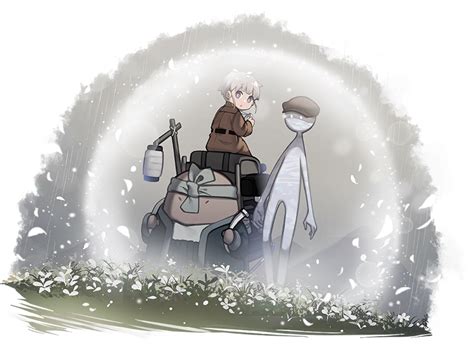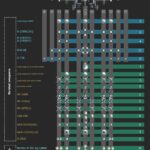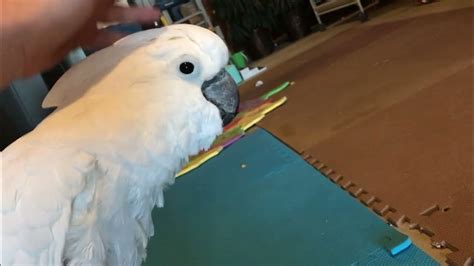
A tiny beagle puppy with a neurological condition causing mobility issues has captured the hearts of animal lovers worldwide, demonstrating resilience and inspiring hope through her journey. Named Honey, the puppy’s determination has resonated with many, highlighting the importance of compassion and support for animals with special needs.
Honey, a small beagle diagnosed with cerebellar hypoplasia, has gained significant attention online for her unwavering spirit despite her physical challenges. Cerebellar hypoplasia is a neurological condition where the cerebellum, responsible for motor control and coordination, doesn’t fully develop. This results in wobbly movements, tremors, and difficulty with balance, making everyday tasks challenging.
Found as part of a litter in less than ideal circumstances, Honey’s condition was immediately apparent. “She came to us from a local animal control as part of a litter,” explains Megan Standish, the director of the Rhode Island animal rescue where Honey is being cared for. “It was clear right away that she was different. She was very wobbly and uncoordinated.” Recognizing the special care Honey required, the shelter staff immediately sought appropriate medical attention and began providing her with the necessary support.
Despite her challenges, Honey’s zest for life is undeniable. Her tail wags constantly, and she approaches every day with enthusiasm, endearing her to everyone she meets. Her story, shared extensively on social media, has drawn an outpouring of support, with people from around the world offering encouragement and donations to assist with her care. Honey’s journey exemplifies the resilience of animals and the power of compassion in helping them overcome adversity.
Diagnosis and Condition: Cerebellar Hypoplasia
Cerebellar hypoplasia is a congenital condition that affects the cerebellum, the part of the brain responsible for coordinating movement and balance. In affected animals, the cerebellum is smaller than normal or underdeveloped, leading to motor dysfunction. The severity of the condition can vary, with some animals experiencing mild incoordination, while others have significant difficulty walking or standing.
The condition isn’t progressive, meaning it doesn’t worsen over time, although the symptoms remain consistent. Animals with cerebellar hypoplasia can live long, happy lives with appropriate care and management.
The causes of cerebellar hypoplasia can vary, but often include viral infections during pregnancy, genetic factors, or exposure to toxins. In Honey’s case, the exact cause is unknown, but her early medical history suggests potential complications during gestation.
Rescue and Initial Care
Upon arriving at the Rhode Island animal rescue, Honey received a thorough veterinary examination to determine the extent of her condition and to rule out other potential health issues. The diagnosis of cerebellar hypoplasia was confirmed through neurological assessment.
The rescue team immediately implemented a care plan tailored to Honey’s specific needs. This included providing her with a safe and comfortable environment, ensuring easy access to food and water, and offering physical therapy to help improve her strength and coordination.
“We quickly realized that Honey would need specialized care,” Standish notes. “Our team is dedicated to providing her with everything she needs to thrive.”
The rescue also began documenting Honey’s progress on social media, sharing videos and photos of her daily activities. The response was overwhelming, with thousands of people expressing their admiration for Honey’s spirit and offering their support.
Social Media Impact
Honey’s story quickly gained traction on social media platforms, including Instagram, Facebook, and TikTok. Her videos, showcasing her playful personality and determined efforts to navigate her surroundings, resonated with a broad audience. The hashtag #HoneyTheBeagle became a hub for updates, fan art, and messages of encouragement.
The viral attention brought numerous benefits. It raised awareness about cerebellar hypoplasia and the challenges faced by animals with disabilities. It also generated significant financial support for Honey’s care, enabling the rescue to provide her with the best possible medical treatment and rehabilitation.
Moreover, Honey’s story inspired many people to consider adopting or fostering animals with special needs. By demonstrating that these animals can lead fulfilling lives, Honey helped to break down stereotypes and promote inclusivity.
“We never anticipated the outpouring of love and support that Honey would receive,” Standish remarks. “It’s truly heartwarming to see how many people care about her well-being.”
Rehabilitation and Progress
Honey’s rehabilitation program includes a combination of physical therapy exercises and environmental modifications to support her mobility. The physical therapy focuses on strengthening her muscles, improving her balance, and enhancing her coordination. Simple exercises, such as assisted walking and gentle stretches, are incorporated into her daily routine.
The rescue team has also made adjustments to her environment to make it easier for her to move around. They have provided her with soft bedding, non-slip surfaces, and ramps to help her access different areas of her living space.
While Honey’s condition is not curable, her progress has been remarkable. She has gained strength and confidence, and she is now able to walk and play with greater ease. Her determination and positive attitude serve as an inspiration to everyone who meets her.
“Honey is a fighter,” Standish emphasizes. “She never gives up, and she always approaches life with a smile. She’s a true testament to the resilience of animals.”
Adoption Prospects and Long-Term Care
The Rhode Island animal rescue plans to eventually find Honey a loving forever home. However, they are committed to ensuring that her adoptive family is fully prepared to meet her unique needs.
The ideal adoptive home for Honey would be a calm and supportive environment where she can receive ongoing care and attention. Her adoptive family would need to be knowledgeable about cerebellar hypoplasia and willing to provide her with the necessary physical therapy and medical support.
The rescue will carefully screen potential adopters to ensure that they are a good fit for Honey. They will also provide ongoing support and guidance to her adoptive family to help them navigate the challenges of caring for a dog with special needs.
In the meantime, Honey will continue to receive the best possible care at the Rhode Island animal rescue. The team is dedicated to ensuring that she lives a happy, healthy, and fulfilling life, regardless of her physical limitations.
Community Support and Awareness
Honey’s story has not only touched the hearts of individuals but has also fostered a sense of community support. Local businesses and organizations have rallied together to provide donations and resources to the Rhode Island animal rescue.
Veterinarians have offered their expertise and services pro bono, ensuring that Honey receives the best possible medical care. Pet supply stores have donated food, toys, and other essential items. And volunteers have dedicated their time to helping with her daily care and rehabilitation.
The rescue has also used Honey’s story to raise awareness about the importance of supporting animal rescues and adopting animals with special needs. They have organized fundraising events, educational workshops, and outreach programs to promote their mission.
“We are incredibly grateful for the outpouring of support that we have received from the community,” Standish says. “It’s inspiring to see so many people come together to help animals in need.”
Ethical Considerations in Animal Rescue
Honey’s case also raises important ethical considerations related to animal rescue and the care of animals with disabilities. Rescues often face difficult decisions about whether to provide extensive medical treatment to animals with serious health conditions, particularly when resources are limited.
The decision to invest in Honey’s care was based on a careful assessment of her overall health and quality of life. The rescue team determined that, despite her cerebellar hypoplasia, Honey had a good prognosis and the potential to live a happy and fulfilling life.
The rescue also considered the ethical implications of euthanasia. While euthanasia is sometimes necessary to relieve suffering, it should only be considered as a last resort when all other options have been exhausted.
In Honey’s case, the rescue team believed that she deserved a chance to live, despite her challenges. They were committed to providing her with the care and support she needed to thrive.
The Broader Impact on Animal Welfare
Honey’s story has had a broader impact on the field of animal welfare, highlighting the importance of compassion, inclusivity, and advocacy. Her journey has inspired many people to become more involved in animal rescue and to support organizations that are dedicated to helping animals in need.
Honey’s story also underscores the need for greater awareness and understanding of disabilities in animals. By educating the public about conditions like cerebellar hypoplasia, we can help to break down stereotypes and promote acceptance.
Furthermore, Honey’s story highlights the importance of advocating for the rights of animals with disabilities. These animals deserve the same level of care and respect as any other animal.
“Honey has taught us so much about resilience, compassion, and the power of hope,” Standish concludes. “She’s a true ambassador for animals with special needs.”
Honey’s Future
As Honey continues her rehabilitation, the Rhode Island animal rescue remains optimistic about her future. They are confident that she will find a loving forever home where she can live a happy and fulfilling life.
In the meantime, Honey will continue to inspire and uplift people around the world with her unwavering spirit and infectious enthusiasm. Her story serves as a reminder that even the smallest and most vulnerable creatures can make a big difference in the world.
The rescue plans to continue sharing updates on Honey’s progress on social media, allowing her fans to follow along on her journey. They also hope to use her story to raise awareness about other animals in need and to encourage more people to support animal rescue organizations.
Honey’s legacy will undoubtedly endure, inspiring countless acts of kindness and compassion for animals with disabilities for years to come.
Updates Since Initial Rescue
Since the initial rescue, Honey has continued to make significant strides in her development and rehabilitation. Regular physical therapy sessions have improved her muscle strength and coordination, allowing her to navigate her surroundings with greater ease.
She has also formed strong bonds with the staff and volunteers at the rescue, who provide her with constant care and affection. Her playful personality shines through during playtime, where she enjoys chasing toys and interacting with her caregivers.
The rescue has also been working on socializing Honey with other dogs. While her initial interactions were cautious, she has gradually become more comfortable around other animals, demonstrating her adaptability and resilience.
Honey’s diet has also been carefully monitored to ensure that she receives the nutrients she needs to thrive. The rescue has consulted with veterinary nutritionists to develop a customized meal plan that supports her overall health and well-being.
In addition to her physical and social development, Honey has also made progress in her cognitive abilities. She has learned to respond to basic commands and has shown a keen interest in learning new things.
Challenges and Ongoing Needs
Despite her progress, Honey continues to face challenges related to her cerebellar hypoplasia. Her balance and coordination remain impaired, making it difficult for her to perform certain tasks.
She also requires ongoing medical care to manage her condition and prevent complications. Regular veterinary checkups are essential to monitor her health and adjust her treatment plan as needed.
The rescue is committed to providing Honey with the resources and support she needs to overcome these challenges. They are constantly seeking new and innovative ways to improve her quality of life.
One of the biggest challenges is finding Honey a suitable forever home. Her special needs require a dedicated and experienced caregiver who is willing to provide her with ongoing support.
The rescue is working closely with potential adopters to ensure that they are fully prepared to meet Honey’s unique needs. They are also providing ongoing training and support to help her transition to her new home.
The Financial Burden of Special Needs Animals
Honey’s case highlights the significant financial burden associated with caring for animals with special needs. Medical expenses, rehabilitation costs, and specialized equipment can quickly add up, placing a strain on rescue organizations.
The Rhode Island animal rescue relies heavily on donations and fundraising efforts to cover these expenses. They are constantly seeking new sources of funding to ensure that they can continue to provide care for Honey and other animals in need.
One of the biggest challenges is raising awareness about the financial needs of special needs animals. Many people are unaware of the costs involved and may not be inclined to donate.
The rescue is working to educate the public about the financial realities of animal rescue and to encourage more people to support their mission. They are also seeking partnerships with local businesses and organizations to raise funds and resources.
Inspiring Acts of Kindness
Despite the challenges, Honey’s story has inspired countless acts of kindness and generosity. People from around the world have donated money, supplies, and time to support her care.
Volunteers have dedicated countless hours to helping with her daily care and rehabilitation. Local businesses have organized fundraising events to raise money for the rescue. And individuals have sent heartfelt messages of encouragement and support.
These acts of kindness serve as a reminder that even in the face of adversity, there is still much good in the world. Honey’s story has brought people together and inspired them to make a difference in the lives of animals in need.
The Rhode Island animal rescue is deeply grateful for the support they have received and is committed to continuing their mission of providing care and compassion to animals like Honey.
A Symbol of Hope
Ultimately, Honey’s story is a symbol of hope. She represents the resilience of animals, the power of compassion, and the importance of inclusivity.
Her journey has touched the hearts of people around the world and has inspired them to make a difference in the lives of animals in need. She has shown us that even the smallest and most vulnerable creatures can overcome adversity and live happy and fulfilling lives.
Honey’s legacy will undoubtedly endure, inspiring countless acts of kindness and compassion for animals with disabilities for years to come. She is a true testament to the power of the human-animal bond and the importance of protecting and caring for all creatures, great and small. Her story serves as a reminder that every life has value and that every animal deserves a chance to thrive. The rescue continues to celebrate her progress and eagerly anticipates the day she finds her forever home, confident that she will continue to inspire and bring joy to all who know her.
Frequently Asked Questions (FAQs)
1. What is cerebellar hypoplasia, and how does it affect Honey?
Cerebellar hypoplasia is a neurological condition in which the cerebellum, the part of the brain responsible for motor control and coordination, is underdeveloped. In Honey’s case, this condition causes wobbly movements, tremors, and difficulty with balance, impacting her ability to walk and navigate her surroundings smoothly. The condition is not progressive, meaning it won’t worsen over time, but Honey’s symptoms will remain consistent.
2. How did Honey come to be under the care of the Rhode Island animal rescue?
Honey was found as part of a litter by local animal control in less than ideal conditions. Recognizing that Honey had unique needs due to her apparent neurological condition, animal control transferred her to the Rhode Island animal rescue, where she could receive specialized care and attention tailored to her specific needs.
3. What kind of care and rehabilitation is Honey receiving?
Honey’s care includes a tailored rehabilitation program involving physical therapy exercises aimed at strengthening her muscles, improving her balance, and enhancing her coordination. The rescue team has also modified Honey’s environment to make it easier for her to move around, providing soft bedding, non-slip surfaces, and ramps. She also receives regular veterinary check-ups to monitor her condition and prevent complications.
4. Can Honey be adopted, and what would be the ideal home for her?
Yes, Honey is expected to be available for adoption in the future. The ideal home for Honey would be a calm and supportive environment with a family knowledgeable about cerebellar hypoplasia and willing to provide the necessary ongoing care, physical therapy, and medical support. Potential adopters will be carefully screened to ensure they can meet her unique needs.
5. How can I support Honey and other animals with special needs?
There are several ways to support Honey and other animals with special needs. You can donate to the Rhode Island animal rescue or other animal welfare organizations that provide care for animals with disabilities. You can also raise awareness about cerebellar hypoplasia and other special needs through social media and community outreach. Furthermore, consider adopting or fostering a special needs animal, as these animals often require extra love and attention. You can also volunteer your time at local animal shelters and rescues to assist with the care of animals in need.









